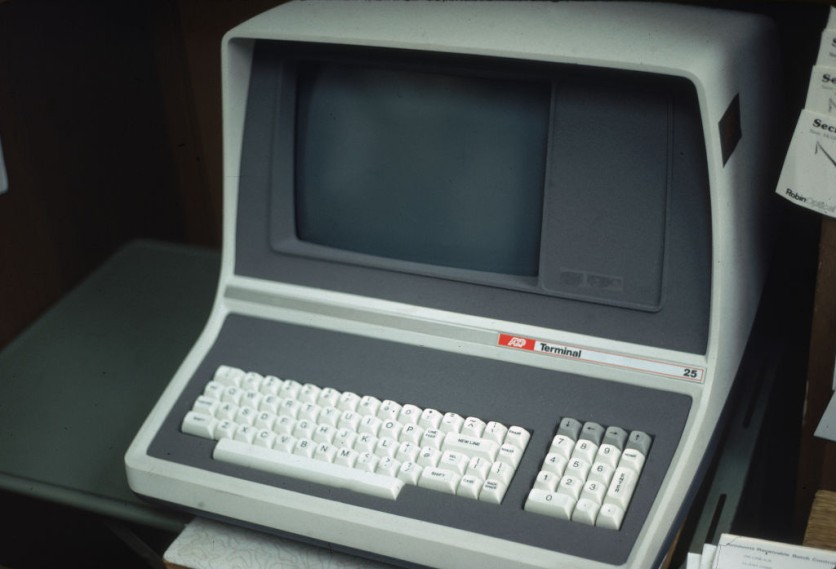Two of the world's earliest microcomputers, the Q1 models, have resurfaced from storage boxes at Kingston University in London, shedding light on the formative years of computing.
The Q1 Microcomputers
The Q1 microcomputers, which are hailed as milestones in technological advancement, are currently on public display at Kingston University as part of an exhibition titled "Creating the Everything Device" that shows the evolution of computing from the 1970s to the 1990s.
These pioneering machines, characterized by their distinctive orange screens and typewriter-like appearance, are equipped with Intel 8008 processors and are considered the first true microcomputers ever commercially produced.

Produced by the Q1 Corporation in the United States in December 1972, the Q1 models mark a notable advancement in the annals of computing.
Paul Neve, a senior lecturer and course leader in computer science at Kingston University, showed great excitement at showcasing these scarce relics, underscoring their influential impact on the evolution of contemporary computing.
Neve also highlighted the significance of early computer visionaries whose groundbreaking advancements paved the way for today's technologies, such as personal computers and smartphones.
"The early pioneers in the 1970s and 1980s laid the foundation for today's everything device - the modern computer now so ubiquitous in everyday life. We rely on computers for our work, communication, productivity and entertainment, but without the early trailblazers none of these would exist. There would be no PCs, no Macs and no Apple or Android phones without Q1 Corporation, Sinclair and Acorn," Neve said in a statement.
Read Also : Star64 RISC-V Single-Board Computer Is a ARM-Based Pi Alternative: Here's What You Should Know
Technologies of the 70s, 80s, and 90s
The exhibition features over 60 computers and gaming machines from the 1970s, 1980s, and 1990s, providing visitors with a glimpse into the early stages of computer development.
Among the showcased items are iconic devices such as the Atari, Sinclair ZX81, ZX Spectrum, BBC Micro, and Commodore, offering insights into the evolution of computing hardware and software.
Visitors to the exhibition can engage with operational machines, play classic computer games, and explore coding and productivity software from bygone eras. The interactive nature of the exhibition allows attendees to experience firsthand the technological advancements that have shaped modern computing.
The exhibition, curated by Neve and Dr. Islam Choudhury from Kingston University's Department of Computer Science, is made possible through a collaboration with Just Clear, a national house clearance company based in Kingston.
A house cleanup by the company Just Clear in London had led to the discovery and preservation of numerous historical artifacts, including rare computers like the Q1 models and a silver label Commodore 64.
Brendan O'Shea, CEO of Just Clear, underscored the company's commitment to preserving historical items encountered during its clearance operations, emphasizing the importance of archiving such artifacts for future generations.
O'Shea highlighted the significance of rare finds like the Q1 microcomputers in providing insights into the early days of computing.
"In the course of our clearance work, we often discover remarkable items, including many old computers and intriguing artifacts with historical significance," O'Shea said.
"Every year, our sustainable clearance teams collect thousands of computers from homes and businesses nationwide. Occasionally, we encounter items deemed important enough to preserve and archive for the future. A few of these rare finds, such as the ultra-rare Q1 and a silver label Commodore 64, are featured in this exhibition," he added.
Related Article : Microsoft Estimates Quantum Computer Capable of 10 to 100 Terabits Per Second Would Make the Tech Easier to Use

ⓒ 2026 TECHTIMES.com All rights reserved. Do not reproduce without permission.




